Deployment List
This screen allows you to view all the deployments that are available under a campaign. You can apply filters like Deployment status, Deployment creator, Channel, Purpose tags, and so on to narrow down the list of deployments.
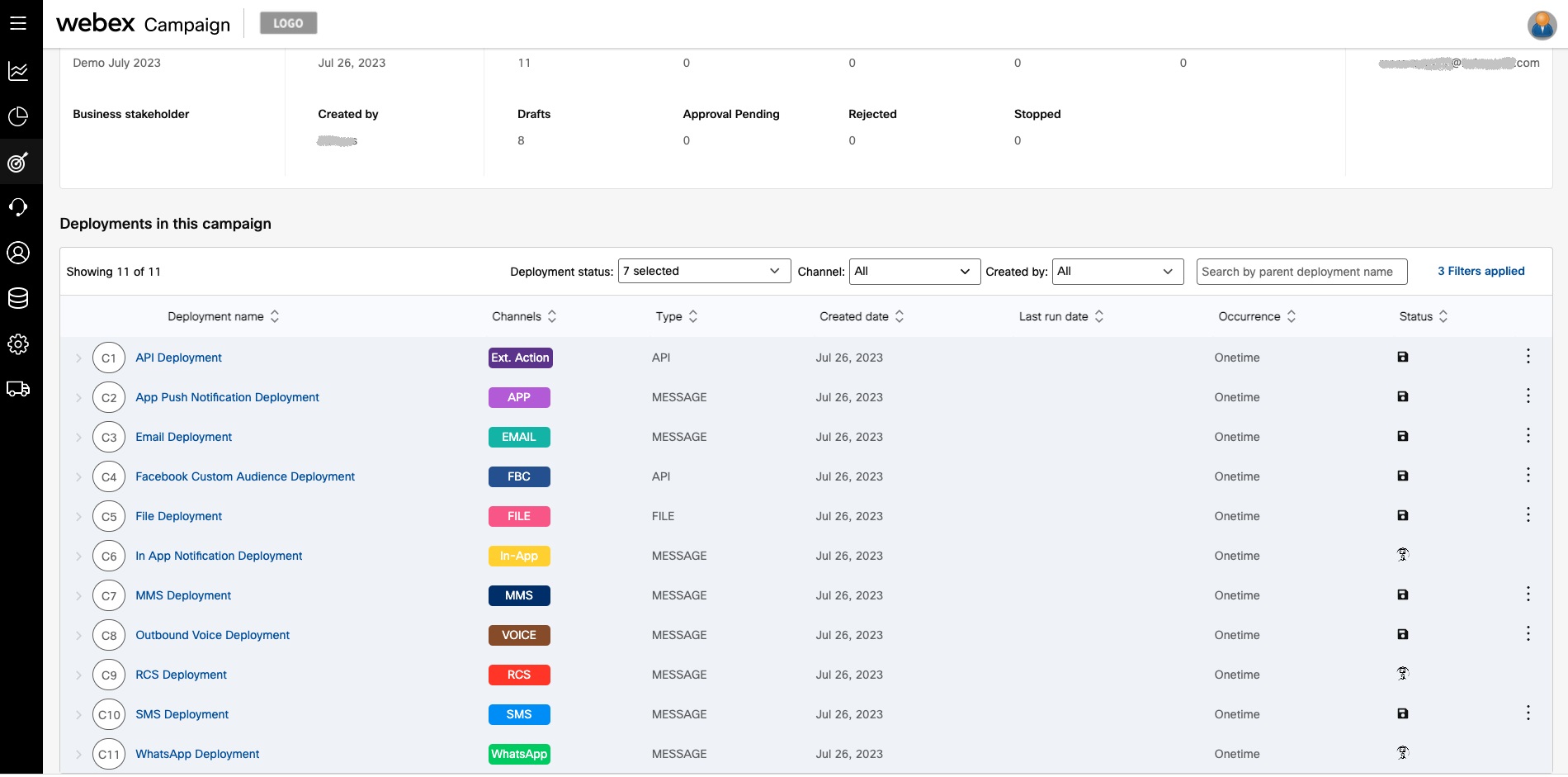
Additionally, you can also use the Search feature to search by Campaign and Deployment names to find the desired deployments.
Deployment Status values
Following are the status values for a deployment from its creation to completion state.
- Approval Pending: This status is displayed when a deployment is configured and sent to an approver.
- Completed By Base: This status is displayed when a deployment completes sending messages to the configured target group.
- Completed By Time: This status is displayed when a deployment could not complete sending messages to the configured target group within the configured schedule.
- Draft: This status is displayed when a deployment is configured and is not activated.
- Pending: This status is displayed when a deployment completes sending messages for the day and awaits the next schedule.
- Paused: This status is displayed when a deployment is paused to amend the deployment.
- Rejected: This status is displayed when the deployment approver rejects a deployment.
- Running: This status is displayed when a deployment is running.
- Shell: This status is displayed when a deployment is created for workflow deployment.
- Stopped: This status is displayed when a deployment is stopped.
Deployment actions
Following are the actions you can perform in the deployment list screen:
- Send for approval
- Activate
- Change TPS
- Pause
- Resume
- Duplicate
- Delete
- Preview & Test
- Stop
- View on dashboard
Send for approval
Some users may not have permission to approve their own deployments. Instead of an Activate button, these users will encounter a Send for Approval button. A user with approval rights must approve the deployment in order for it to execute. For more information, refer to Deployment approval management.
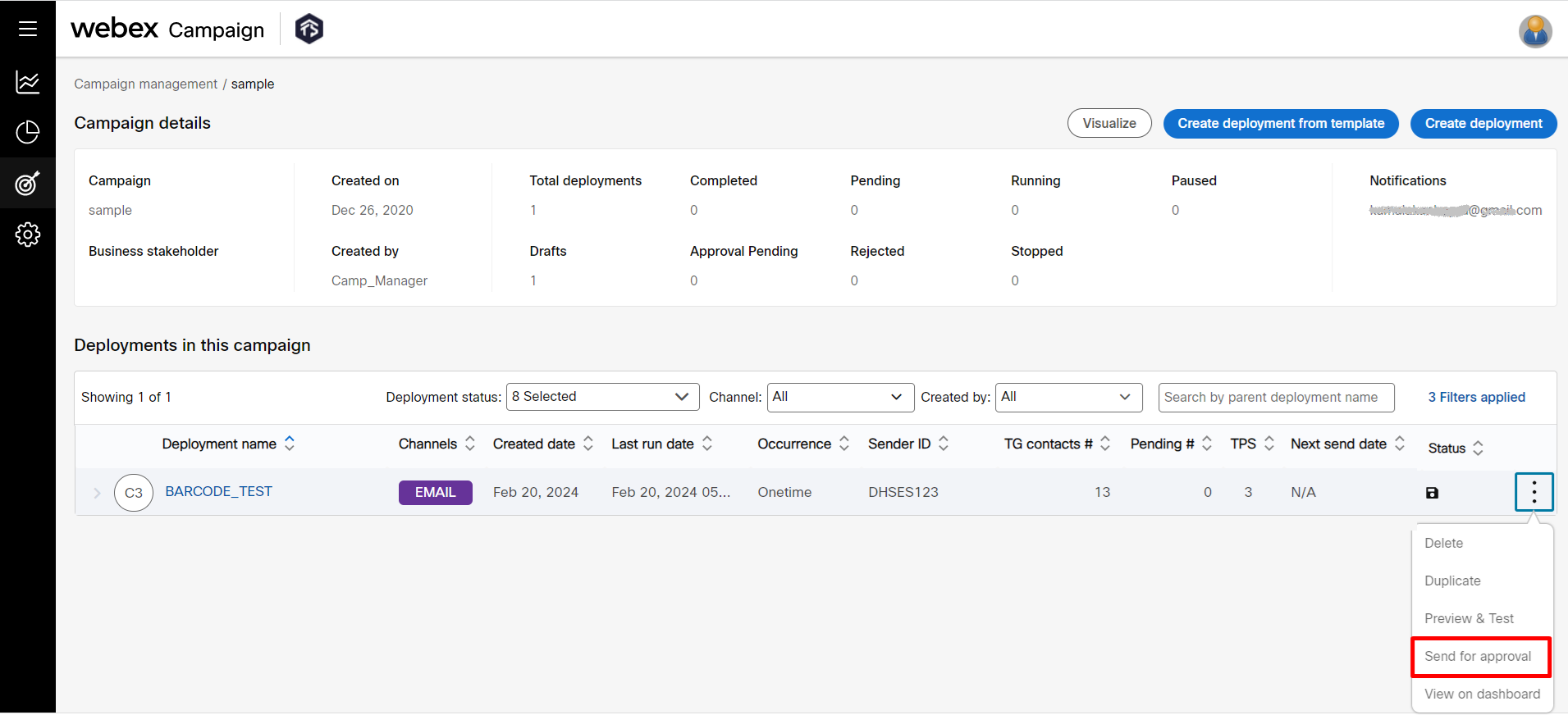
Activate
Users with appropriate permission will be able to approve their own deployments. These users will be able to see Approve button. Once the approve button is clicked, the deployment will run as per the configured schedule.
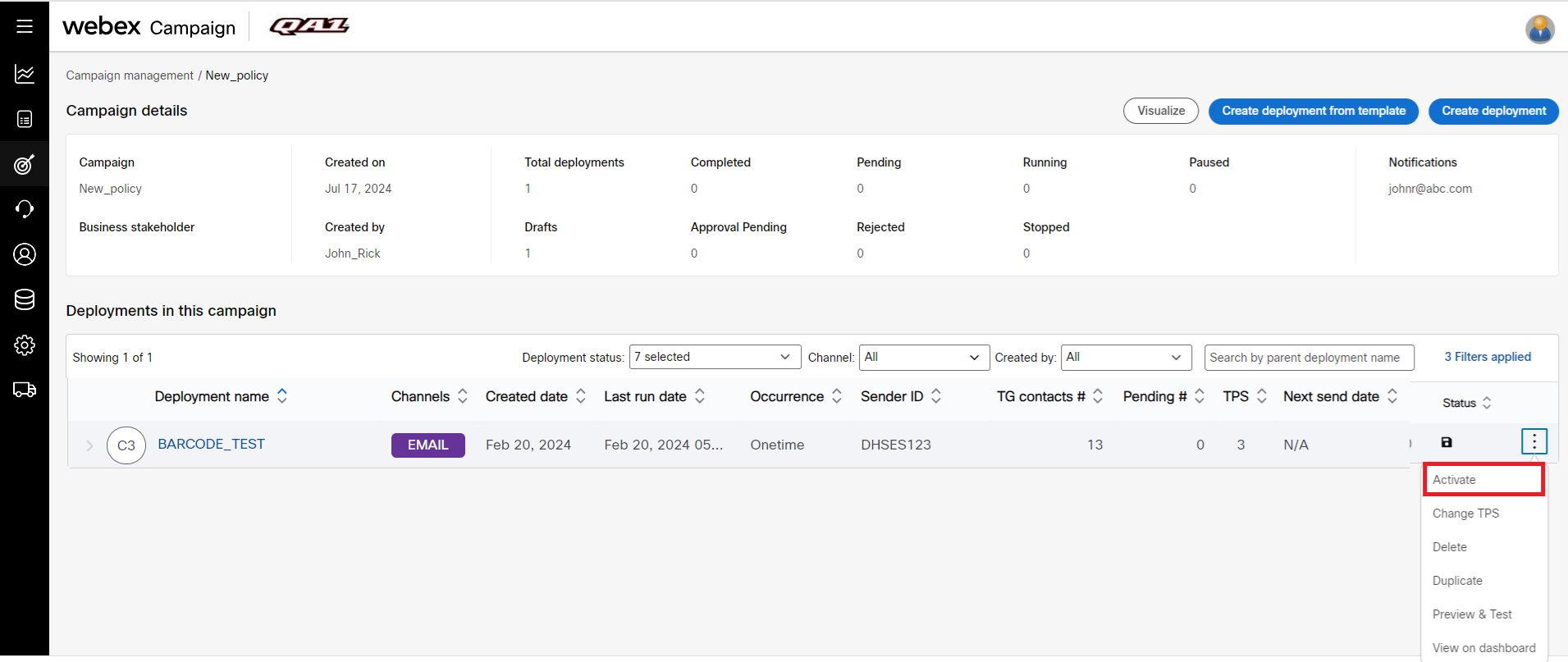
Change TPS
You can change the TPS (throughput transactions per second) for a deployment in the ‘Running’ or ‘Pending’ status without having to pause the deployment.
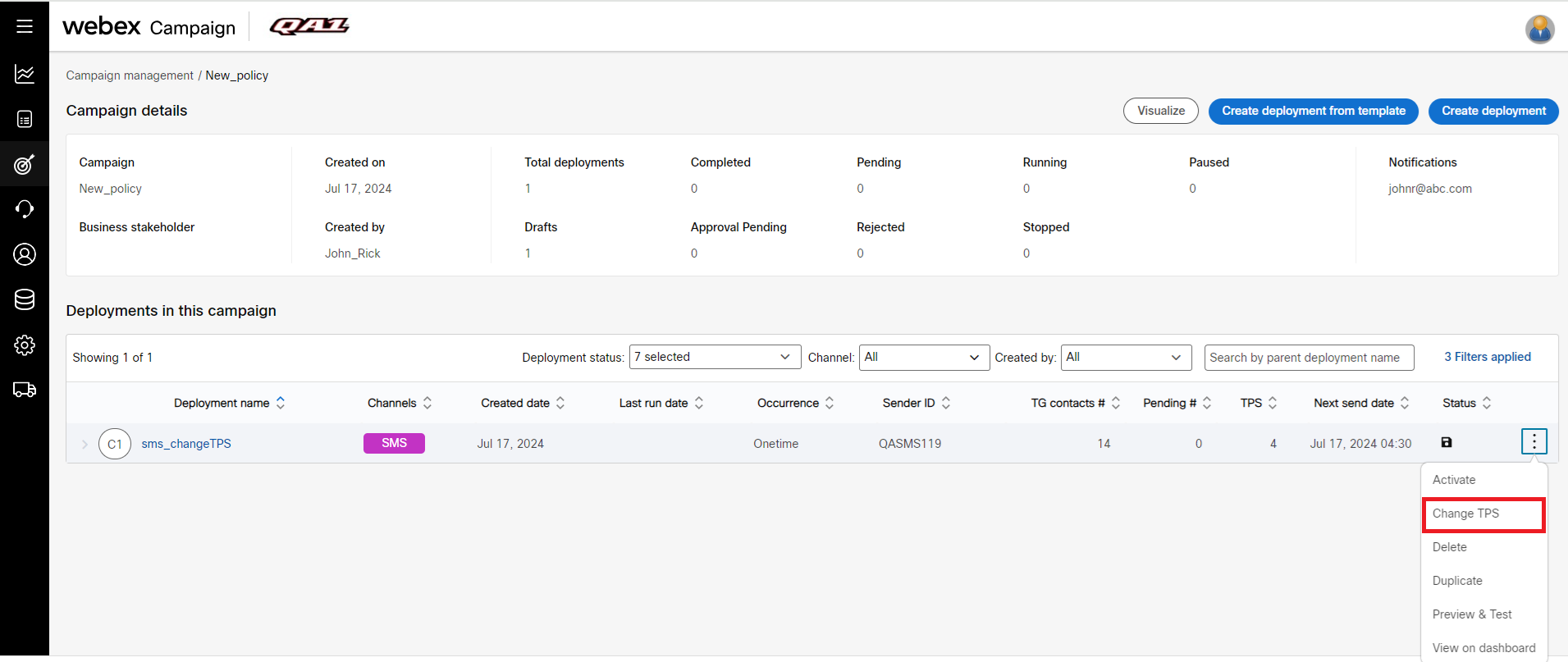
On the following pop-up, you can specify the new TPS value, which will be effective in the next 2-3 minutes after you click on the ‘Change TPS’ button.
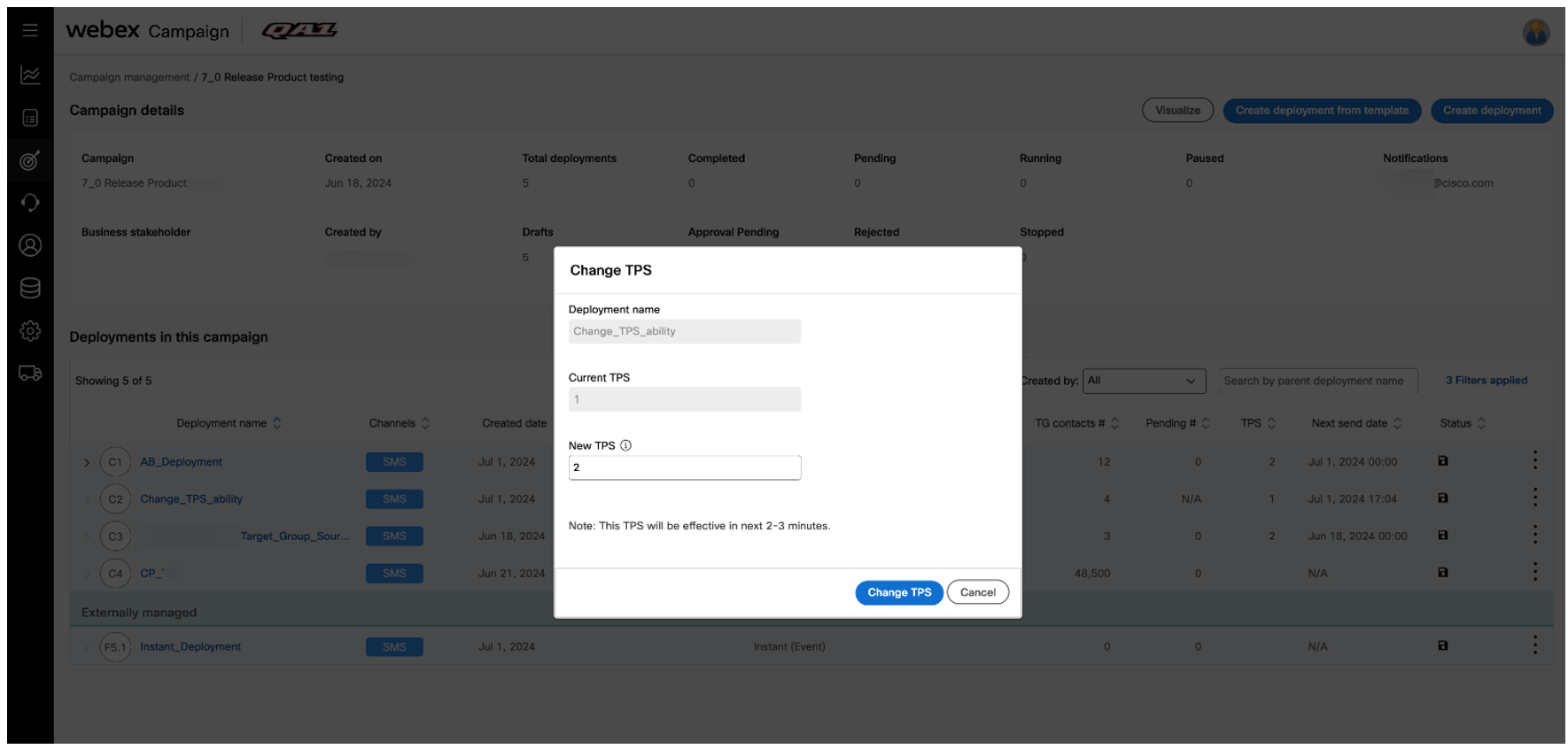
Usage notes:
a. This feature is not applicable to ‘Instant deployments’.
b. This feature is not applicable to ‘A/B promotion’ deployments.
c. This feature is not applicable to SMS deployments for which the ‘Auto TPS’ option has been selected.
d. This feature is not applicable to SMS deployments which have the ‘Auto TPS’ option enabled.
e. If a deployment is saved in a ‘draft’ status, and the router has not yet been assigned to the deployment, then it is not possible to change the TPS; you will first need to assign a TPS to be able to change it.
f. You can also change the TPS using the ‘Update SMS Deployment API’ also.
Delete
You can delete a deployment that is in Draft state. From the deployment list screen, click the ellipses icon of the required deployment and click Delete.
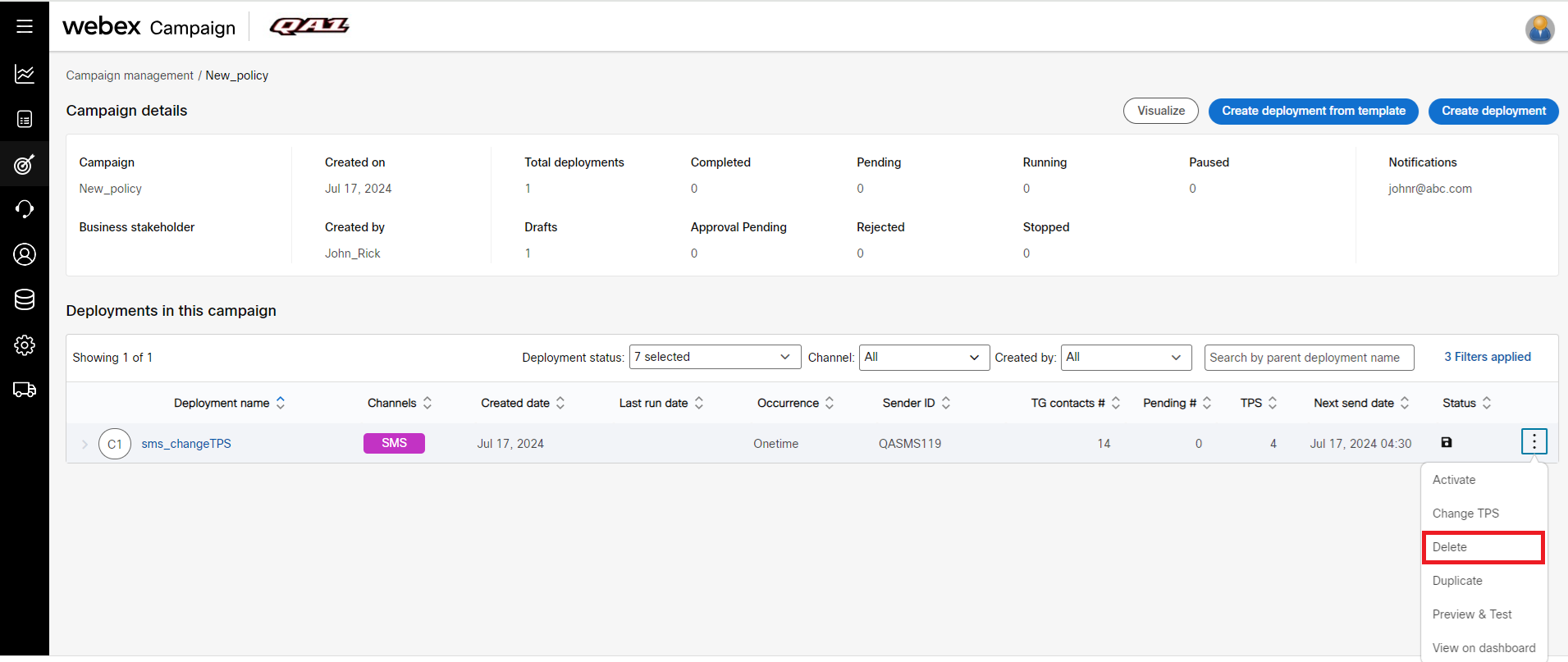
Duplicate
To utilize a deployment again, you can duplicate it, which will copy over the configured settings to a new deployment. This method saves significant time compared to creating a new deployment from scratch.
On the deployment list screen, locate the desired deployment you wish to reuse and click on the ellipses icon.
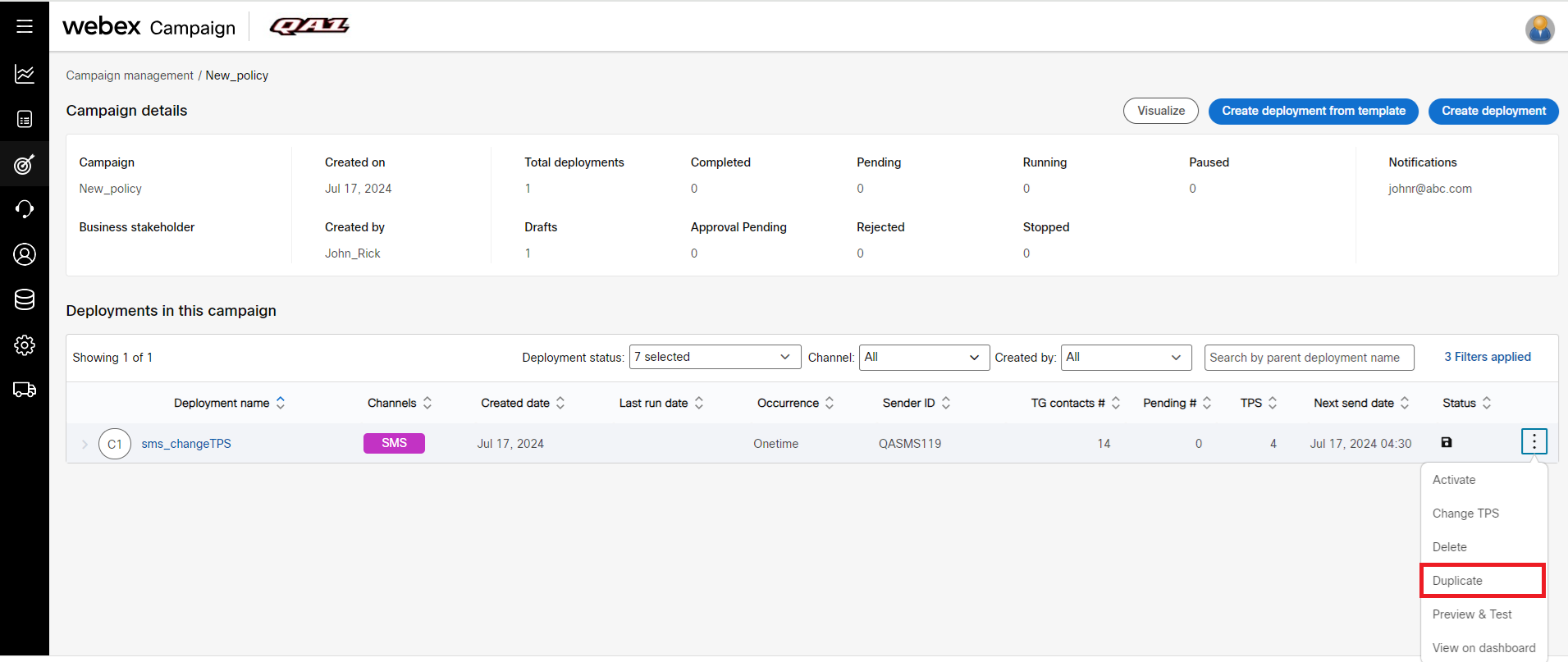
A popup is displayed to enter a name for the duplicated deployment. Enter a new name and click Save.
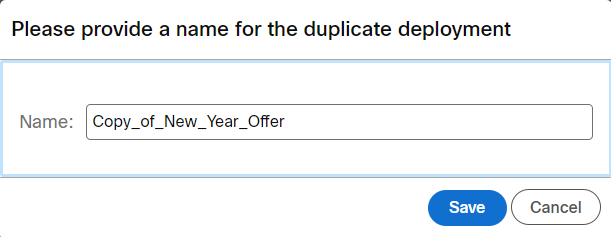
Preview & Test
You can preview and test the deployment before activating. From the deployment list screen, click the ellipses icon of the required deployment and click Preview & Test.
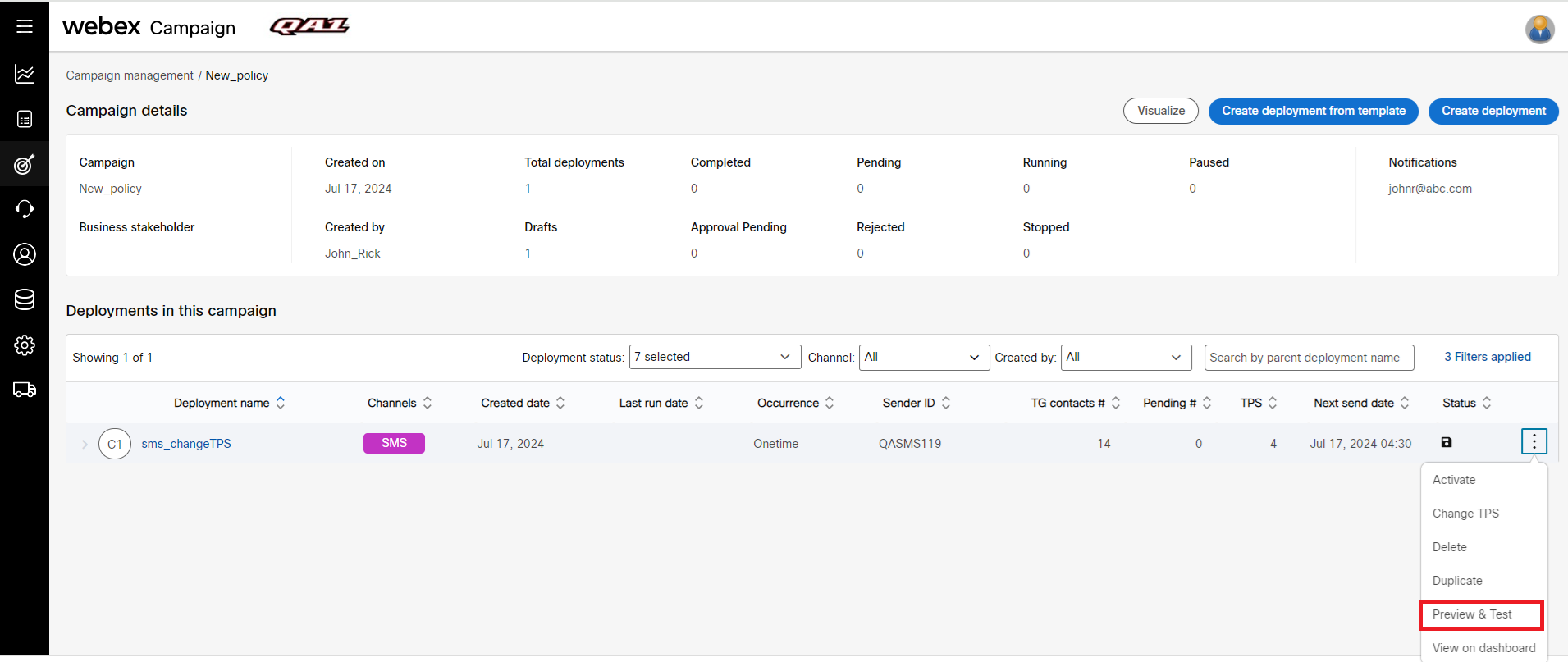
View on dashboard
When a deployment is activated, you would want to view the dashboard metrics for that deployment. Click on the ellipses icon of the required deployment and click View on dashboard. You will be navigated to the dashboard screen which will display the metrics of the deployment.
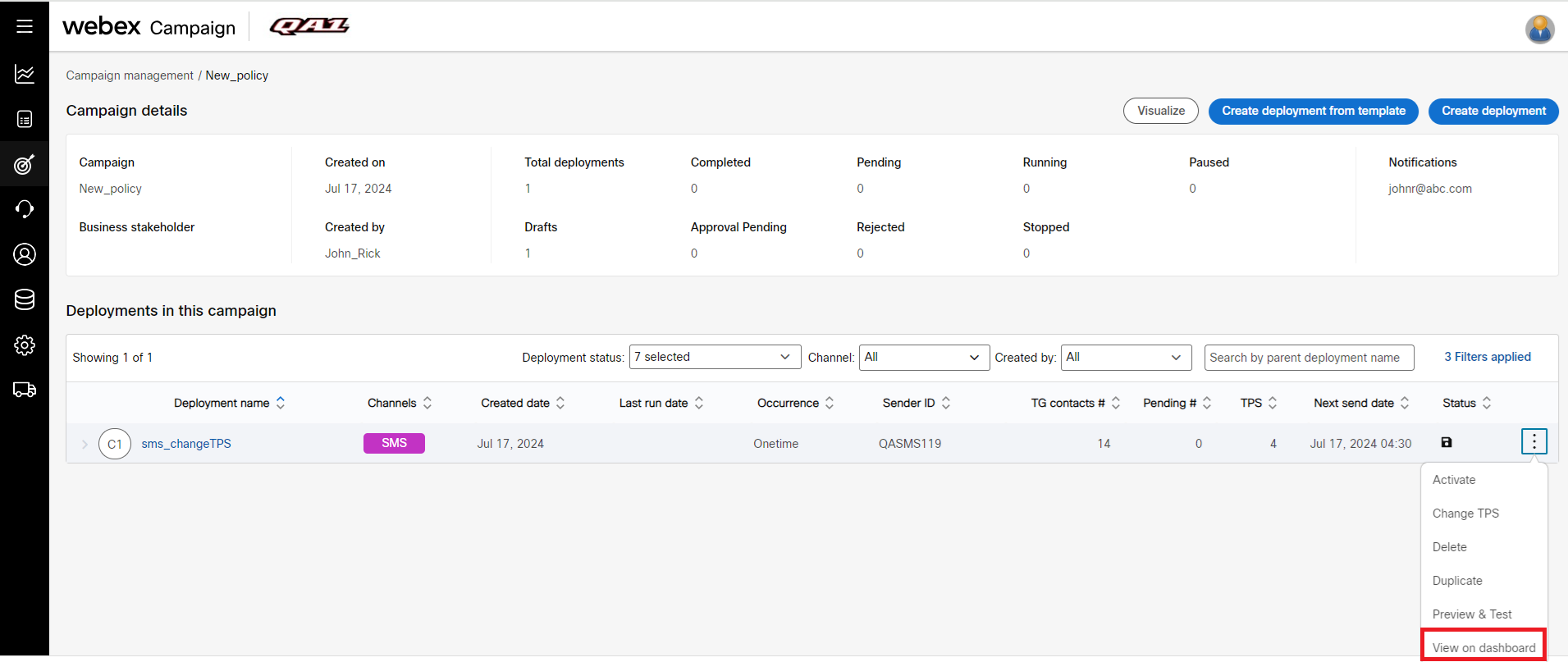
Stop
From the deployment list screen, locate the deployment that you want to stop. Click on the ellipses icon of the deployment and click Stop. You can also stop the deployments from the Active deployments list screen, For more information, refer To stop a single deployment.
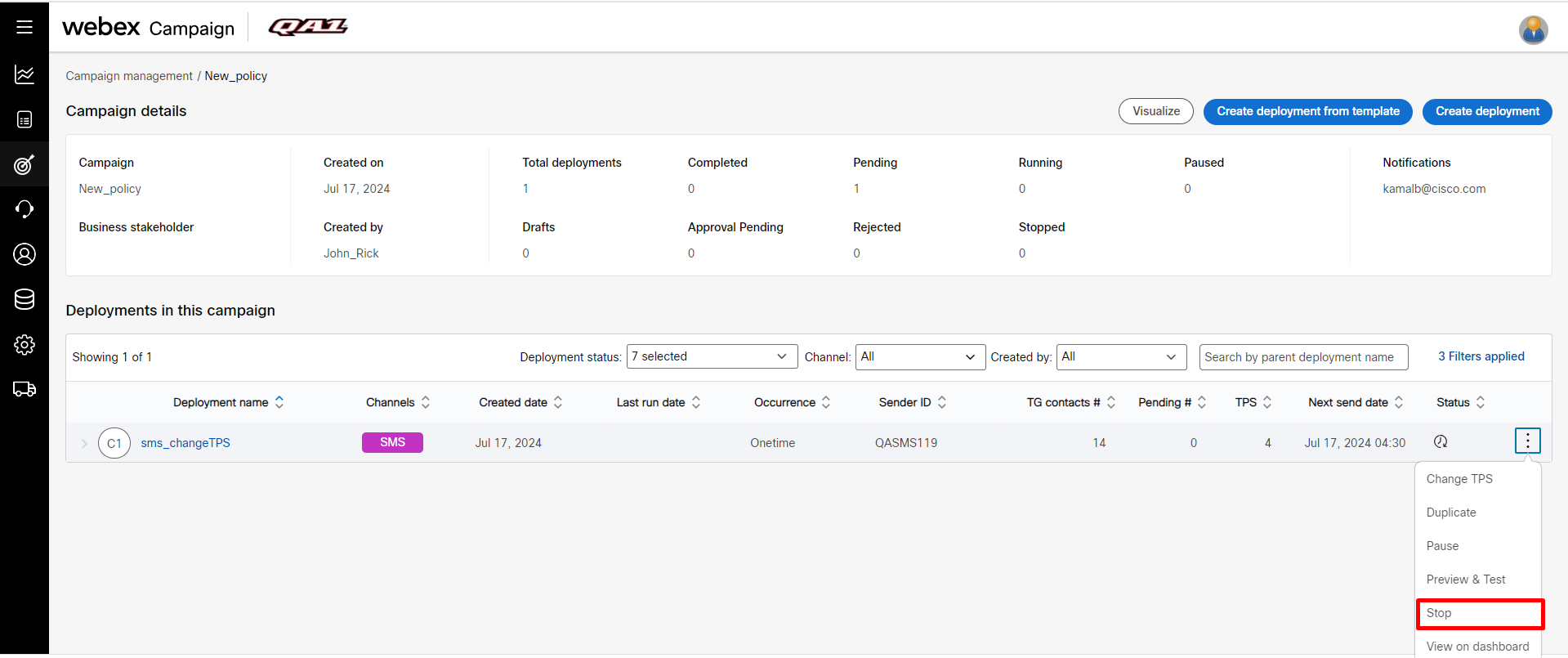
Resume
From the deployment list screen, locate the deployment that you want to resume. Click on the ellipses icon of the deployment and click Resume.
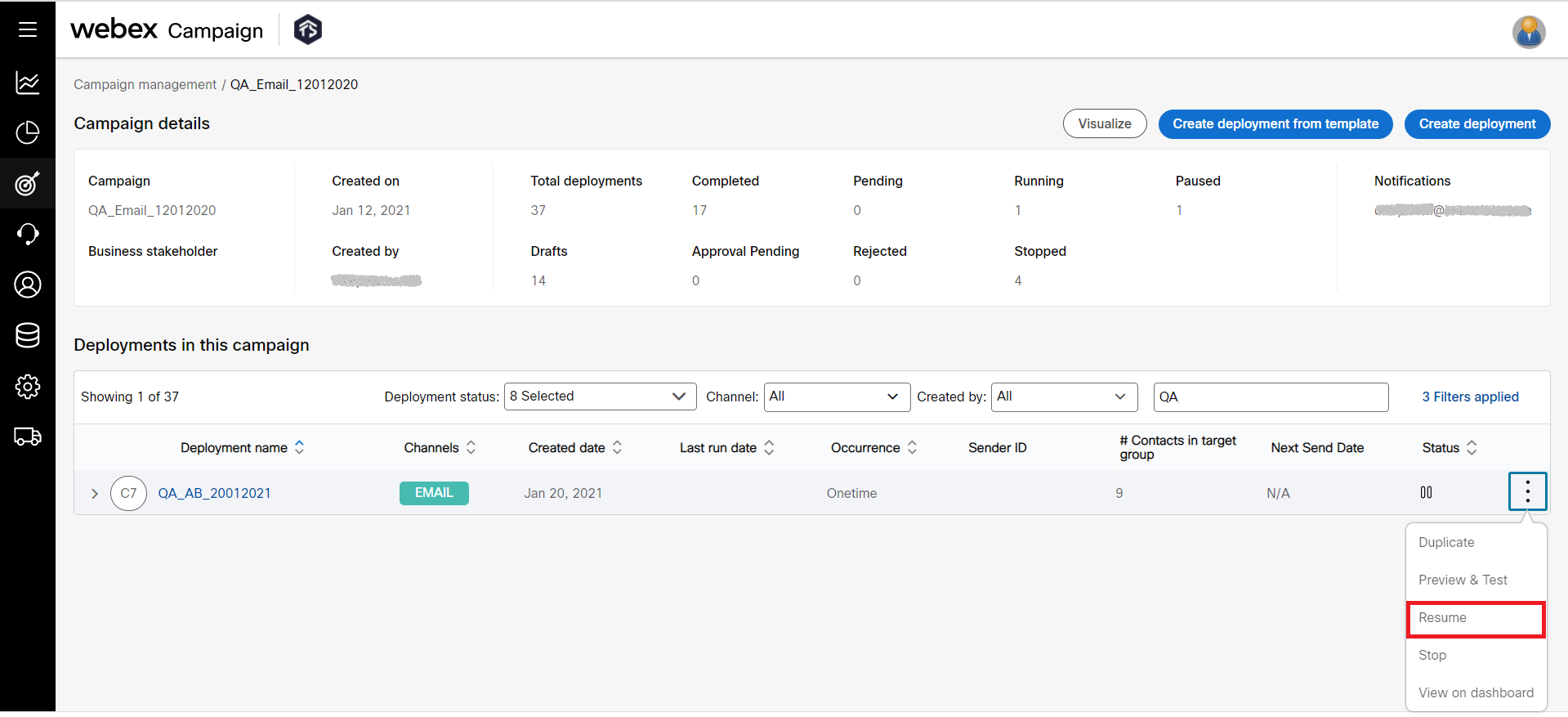
Pause
You can pause a deployment that is in a running state. To pause a deployment, navigate to Campaign management > Active deployments. This screen will display all the deployments that are currently in a running state. Click the ellipses icon of the required deployment and click Pause. To pause multiple deployments, select the checkbox of the required deployments and click on Pause the selected deployments.
For more information on pausing multiple deployments, refer to To Pause a Single or Multiple Deployments.
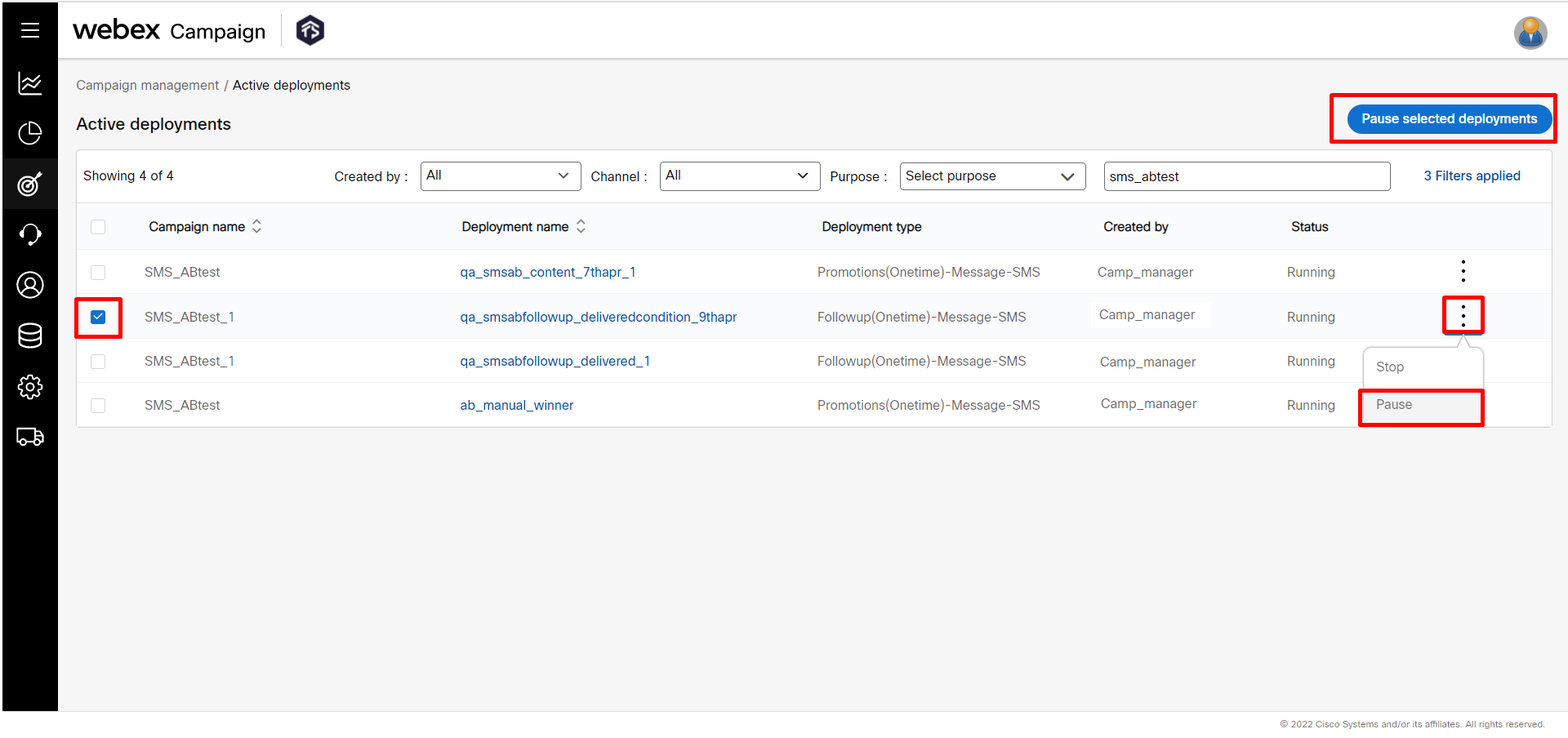
Updated 3 months ago